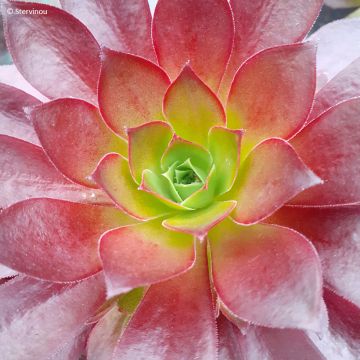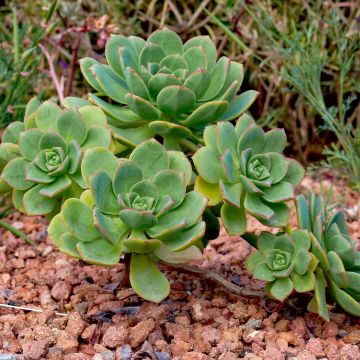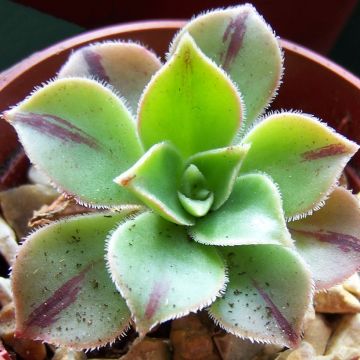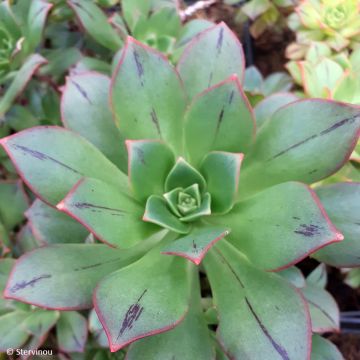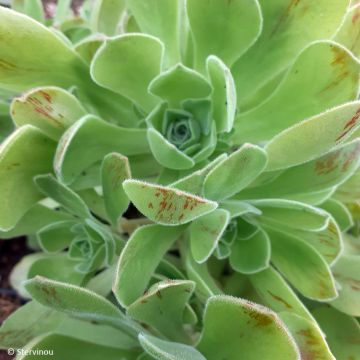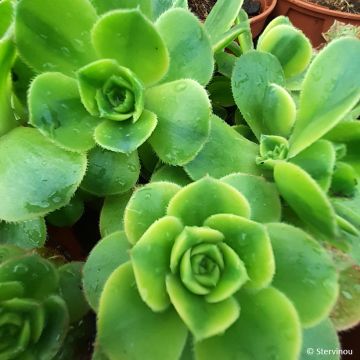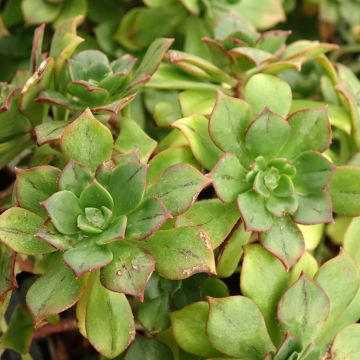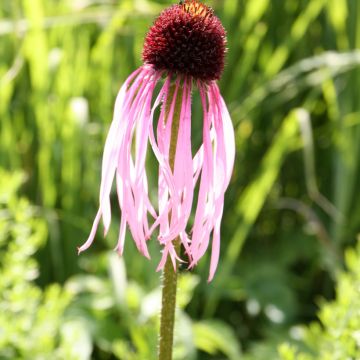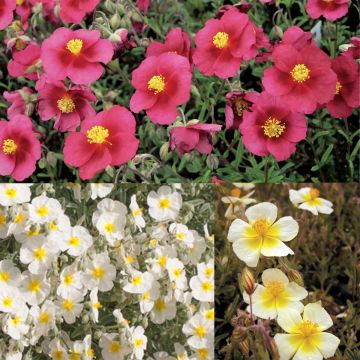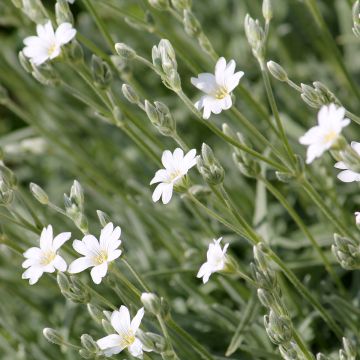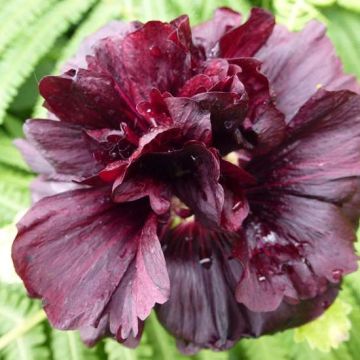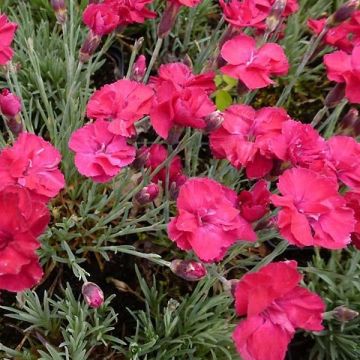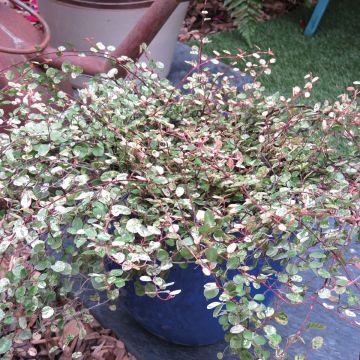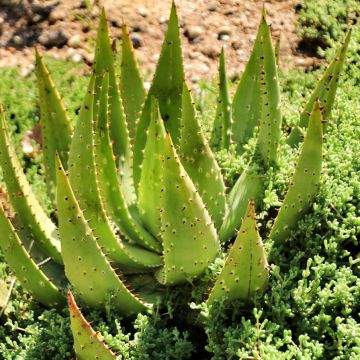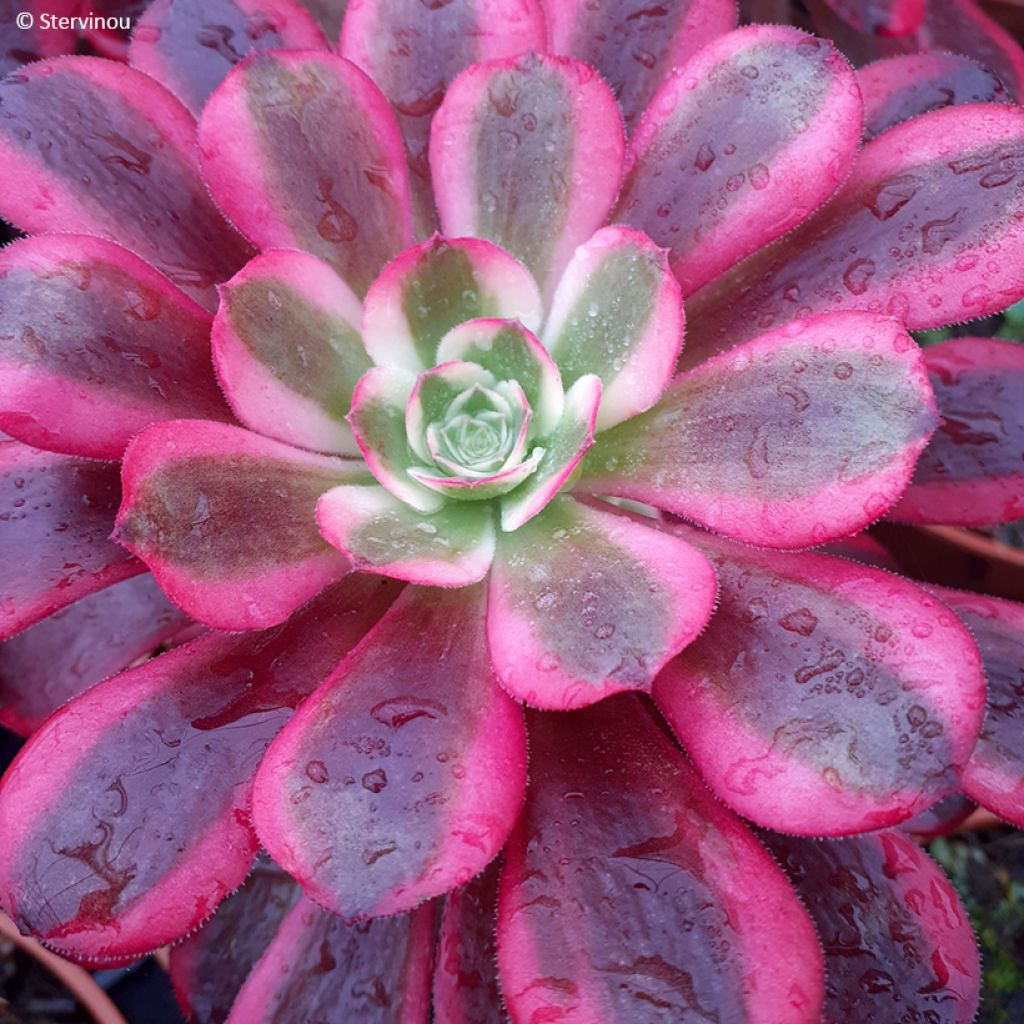

Aeonium arboreum Medusa - Tree Houseleek
Aeonium arboreum Medusa - Tree Houseleek
Aeonium arboreum Medusa
Tree Aeonium, Tree Houseleek
Beautiful plant. It's developing little by little.
Sonia, 14/10/2025
Special offer!
Receive a €20 voucher for any order over €90 (excluding delivery costs, credit notes, and plastic-free options)!
1- Add your favorite plants to your cart.
2- Once you have reached €90, confirm your order (you can even choose the delivery date!).
3- As soon as your order is shipped, you will receive an email containing your voucher code, valid for 3 months (90 days).
Your voucher is unique and can only be used once, for any order with a minimum value of €20, excluding delivery costs.
Can be combined with other current offers, non-divisible and non-refundable.
Why not try an alternative variety in stock?
View all →This plant carries a 24 months recovery warranty
More information
We guarantee the quality of our plants for a full growing cycle, and will replace at our expense any plant that fails to recover under normal climatic and planting conditions.

Would this plant suit my garden?
Set up your Plantfit profile →
Description
The Aeonium arboreum 'Medusa' is a captivating horticultural variety, both for its remarkable design and its unusual colours. Its leaves, perfectly arranged in rosettes of astonishing regularity, exhibit varying shades depending on the season and sunlight. The dominant green and white-yellow hues of winter only remain in the centre of the rosettes in summer, while the leaves turn to a pronounced red with a central black band. Forming a compact little pyramid, this Aeonium grows in most well-draining soils. Not very hardy, it should be grown in a pot to be overwintered indoors in most French regions.
The Aeonium is a succulent plant from the Crassulaceae family, which includes 30 genera and nearly 1400 species. The popular Kalanchoe that blooms indoors, the Sedum sometimes used for roof greening, and the Houseleek, which is part of our native flora, are well-known and diversified representatives in their forms. The 45 species of Aeonium, on the other hand, all have a family resemblance, and most are native to the Canary Islands. Their vegetation formed by very geometric rosettes is very characteristic and gives them a highly ornamental character.
'Medusa' is a recent variety discovered by a Dutch horticulturist in 2016, then purchased at a good price by a Chinese enthusiast named Wu Ning, who later introduced it to the market. He named it 'Medusa' because the dark central bands on the leaves, which thus spread out to 360°, evoked in his mind the snakes writhing in all directions above the head of the Gorgon Medusa in Greek mythology.
This Aeonium indeed has a rather intriguing appearance. It produces relatively wide leaves, with rounded tips, organized in very regular rosettes. As the axis grows, new rosettes develop, giving the plant a more or less pyramidal and very aesthetic silhouette. Compact, the plant reaches approximately 40 cm in height and 30 cm in width in eight to ten years of cultivation, and may continue to grow a little with age. In winter, when the light is low, 'Medusa' takes on a two-tone variegated appearance, with the longitudinal midsection of the leaves being green, while the border is white-yellow. Then a reddish border appears on the periphery of the leaf blade, gradually progressing as the sunlight increases. In summer, it's the climax, the leaves turn to an intense carmine purple red, enhanced by the almost black central band, while in the centre of the rosette, a few remaining young leaves in yellow and green form a superb contrast with the darker mature leaves.
The Aeonium arboreum 'Medusa' displays a fascinating beauty that evolves throughout the year. This low-growing plant thrives well in a pot and should be protected from frost during winter, as it is not very hardy. In the warmer season, you can create an exotic scene on your terrace by pairing it with other ornamental tender plants, such as the sculptural Agave victoriae reginae, which forms a perfect rosette of elongated leaves in a fairly light green edged with white. The Aloe brevifolia will also be a good companion, with its toothed leaves rosette and especially its magnificent spikes of orange-red flowers in spring. And for a radical change in silhouette while staying in an exotic note, adopt a Calamondin (Citrus madurensis), a small citrus tree with white flowers that will give you decorative small spherical orange fruits that you can use in cooking.
Report an error about the product description
Aeonium arboreum Medusa - Tree Houseleek in pictures
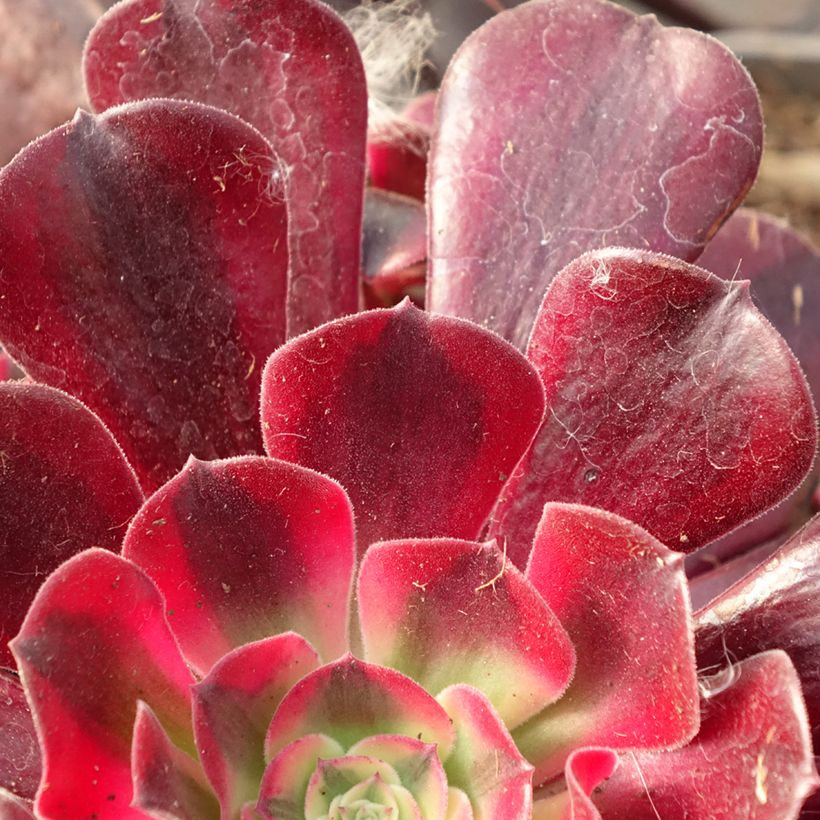

Plant habit
Flowering
Foliage
Botanical data
Aeonium
arboreum
Medusa
Crassulaceae
Tree Aeonium, Tree Houseleek
Cultivar or hybrid
Planting and care
The Aeonium arboreum 'Medusa', highly heat and drought resistant, requires a light, well-drained, sandy, poor, even slightly calcareous soil. Plant it in spring in the ground in a warm and dry climate, and in a very sheltered location. Planting in pots is possible all year round, sheltered from frost of course. It thrives preferably in the sun, tolerating partial shade in the south, and enjoys having warm roots. Its hardiness is low, it can withstand light occasional frosts (best up to -5°C but sometimes less) which limits planting possibilities in the ground to sheltered areas of the Midrib. Overwinter this plant in an unheated but frost-free, and imperatively very bright room. Water moderately from autumn to spring, and sparingly in winter.
Planting period
Intended location
Care
-
, onOrder confirmed
Reply from on Promesse de fleurs
Similar products
Haven't found what you were looking for?
Hardiness is the lowest winter temperature a plant can endure without suffering serious damage or even dying. However, hardiness is affected by location (a sheltered area, such as a patio), protection (winter cover) and soil type (hardiness is improved by well-drained soil).

Photo Sharing Terms & Conditions
In order to encourage gardeners to interact and share their experiences, Promesse de fleurs offers various media enabling content to be uploaded onto its Site - in particular via the ‘Photo sharing’ module.
The User agrees to refrain from:
- Posting any content that is illegal, prejudicial, insulting, racist, inciteful to hatred, revisionist, contrary to public decency, that infringes on privacy or on the privacy rights of third parties, in particular the publicity rights of persons and goods, intellectual property rights, or the right to privacy.
- Submitting content on behalf of a third party;
- Impersonate the identity of a third party and/or publish any personal information about a third party;
In general, the User undertakes to refrain from any unethical behaviour.
All Content (in particular text, comments, files, images, photos, videos, creative works, etc.), which may be subject to property or intellectual property rights, image or other private rights, shall remain the property of the User, subject to the limited rights granted by the terms of the licence granted by Promesse de fleurs as stated below. Users are at liberty to publish or not to publish such Content on the Site, notably via the ‘Photo Sharing’ facility, and accept that this Content shall be made public and freely accessible, notably on the Internet.
Users further acknowledge, undertake to have ,and guarantee that they hold all necessary rights and permissions to publish such material on the Site, in particular with regard to the legislation in force pertaining to any privacy, property, intellectual property, image, or contractual rights, or rights of any other nature. By publishing such Content on the Site, Users acknowledge accepting full liability as publishers of the Content within the meaning of the law, and grant Promesse de fleurs, free of charge, an inclusive, worldwide licence for the said Content for the entire duration of its publication, including all reproduction, representation, up/downloading, displaying, performing, transmission, and storage rights.
Users also grant permission for their name to be linked to the Content and accept that this link may not always be made available.
By engaging in posting material, Users consent to their Content becoming automatically accessible on the Internet, in particular on other sites and/or blogs and/or web pages of the Promesse de fleurs site, including in particular social pages and the Promesse de fleurs catalogue.
Users may secure the removal of entrusted content free of charge by issuing a simple request via our contact form.
The flowering period indicated on our website applies to countries and regions located in USDA zone 8 (France, the United Kingdom, Ireland, the Netherlands, etc.)
It will vary according to where you live:
- In zones 9 to 10 (Italy, Spain, Greece, etc.), flowering will occur about 2 to 4 weeks earlier.
- In zones 6 to 7 (Germany, Poland, Slovenia, and lower mountainous regions), flowering will be delayed by 2 to 3 weeks.
- In zone 5 (Central Europe, Scandinavia), blooming will be delayed by 3 to 5 weeks.
In temperate climates, pruning of spring-flowering shrubs (forsythia, spireas, etc.) should be done just after flowering.
Pruning of summer-flowering shrubs (Indian Lilac, Perovskia, etc.) can be done in winter or spring.
In cold regions as well as with frost-sensitive plants, avoid pruning too early when severe frosts may still occur.
The planting period indicated on our website applies to countries and regions located in USDA zone 8 (France, United Kingdom, Ireland, Netherlands).
It will vary according to where you live:
- In Mediterranean zones (Marseille, Madrid, Milan, etc.), autumn and winter are the best planting periods.
- In continental zones (Strasbourg, Munich, Vienna, etc.), delay planting by 2 to 3 weeks in spring and bring it forward by 2 to 4 weeks in autumn.
- In mountainous regions (the Alps, Pyrenees, Carpathians, etc.), it is best to plant in late spring (May-June) or late summer (August-September).
The harvesting period indicated on our website applies to countries and regions in USDA zone 8 (France, England, Ireland, the Netherlands).
In colder areas (Scandinavia, Poland, Austria...) fruit and vegetable harvests are likely to be delayed by 3-4 weeks.
In warmer areas (Italy, Spain, Greece, etc.), harvesting will probably take place earlier, depending on weather conditions.
The sowing periods indicated on our website apply to countries and regions within USDA Zone 8 (France, UK, Ireland, Netherlands).
In colder areas (Scandinavia, Poland, Austria...), delay any outdoor sowing by 3-4 weeks, or sow under glass.
In warmer climes (Italy, Spain, Greece, etc.), bring outdoor sowing forward by a few weeks.






























